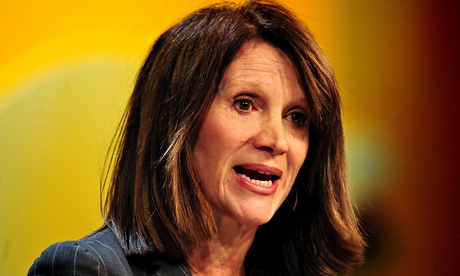
Religious and community leaders have signed a historic declaration condemning female genital mutilation, but said there are still barriers to ending the practice in the UK.
The Somali Bravanese Community, Muslim Women's Network UK and the Church of England were among 160 groups to have voiced support for the declaration, which states that the practice is not supported by any religious doctrine. At a meeting in Westminster on Wednesday, they promised to take the message into their communities.
Norman Baker, minister for crime prevention, said the declaration– the first of its kind – was part of a push to win "hearts and minds" in the battle against FGM, which affects 125 million women and girls worldwide.
Baker said the summit was a "landmark moment". "By bringing together religious and community leaders to forge a commitment to condemn this shocking practice, we are working to support communities to abandon the practice themselves."
Asked if there was any resistance to the declaration Yousif al-Khoei, of Al-Khoei Foundation, said: "There are always some barriers, otherwise we wouldn't be here. But the majority of scholars are against FGM, and already leaders from Somalian, Egyptian, Nigerian and other affected communities are signing up and are committed to change. They are taking this issue seriously, but it takes time."
The Muslim Council of Britain has said it has launched its own campaign against FGM, but had not been contacted by the Home Office. "We were not asked by the Home Office to sign. Should the opportunity arise, we will," said a spokeswoman.
The Home Office said the declaration was a voluntary charter, and it encouraged all groups to sign up.
The fight to end FGM has gathered pace in recent months, with the government introducing data collection by health professionals and launching awareness-raising campaigns.
Meanwhile, the Crown Prosecution Service has brought the first FGM case to court. After pressure from a Guardian campaign, which won the support of 250,000 signatories, and the UN secretary general Ban Ki-moon, Michael Gove, the UK's education secretary, sent a letter to teachers in England and Wales warning them of the dangers of FGM.
Lynne Featherstone, international development minister, said that faith and community leaders, who will formally sign the declaration at a girls' summit hosted by the prime minister in July, were fundamental in the fight to end FGM. "They have the power and the influence to bring about change in their communities and communicate the true harm that is caused by this practice," she said.
FGM involves the removal of a girls outer sexual organs and can cause lifelong psychological and physical complications. An estimated 20,000 girls in the UK are thought to be at risk of the practice.
Sheikh Tayeb Mustapha Cham, imam and founder of the Taiba Welfare Foundation, said some imams still resisted condemning FGM, but religious leaders had a responsibly to speak out. "Before there were barriers when we talked, but now we can openly condemn [the practice]. Now it is only imams who are isolated from society who still support this practice. Together we can remove those barriers and say this is nothing to do with religion," he said. "The voice [of religious leaders] will be heard, and if the advice comes from them, they will be obeyed."

